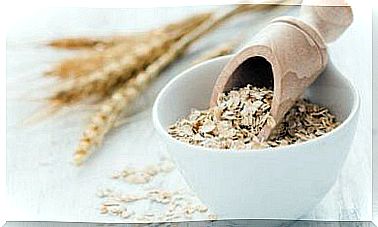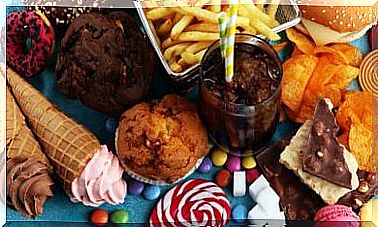The Worst Foods You Can Eat And Their Healthier Alternatives
When choosing our food, it is always better to go for natural alternatives rather than packaged products, as we will thus avoid to consume unnecessary additives.
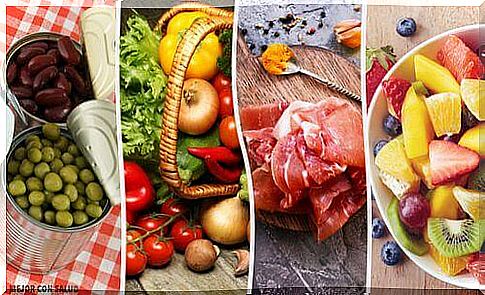
If you eat foods like fruits, vegetables, whole grains, and lean protein, you’re probably above the nutritional curve.
However, you can still make mistakes with your food choices. And without even realizing it.
Not all foods are produced the same, even healthy foods, and you can’t get as many vitamins and nutrients as you think.
Because of this, it is possible that you are inadvertently bringing excess sugar and sodium to your body.
In this article, we identify the worst foods you can eat and their healthier alternatives to meet your nutritional needs.
The worst foods for your body
All canned foods
Canned vegetables are often devoid of fiber and other nutrients. They are on the other hand loaded with sodium. If you eat canned vegetables frequently, you will notice a decrease in nutritional intake.
Vegetables with starch
Corn, peas, potatoes, squash, and yams tend to contain fewer vitamins, minerals, and fiber than other types of vegetables.
In addition, they often contain between two and three times more calories per serving than other non-starchy vegetables.
Canned baked flageolet beans
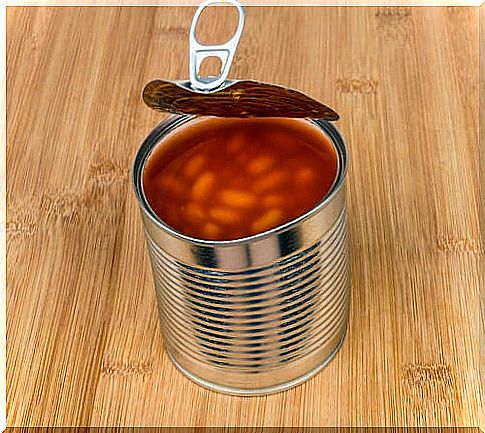
Just like regular canned beans, canned flageolais contain 3 teaspoons of sugar per serving and 50% more sodium.
Industrial fruit drinks
They are often marketed as “real juice”, but the labels on these products prove otherwise. They’re loaded with sugar and artificial sweeteners, and void of good calories.
Some companies try to avoid adding sugar to fruit drinks by adding artificial sweeteners. However, these additives can increase cravings for fatty, sweet, salty and unhealthy foods.
Canned or dehydrated fruit
Fruits are naturally sweet, so there should be no added sugar or “sugar-based flavor enhancers”, but they are sometimes found in some canned foods.
Think about it, a raisin is just a classic grape so the size has gone down, so a cup of raisins has a lot more calories than a cup of whole grapes.
White bread and pasta
Refined starches, such as white bread, pasta, rice, and crackers, remove bran and wheat germ.
- This type of grain has a higher glycemic index. This means that the sugars are absorbed more quickly into the bloodstream.
Sweet cereals
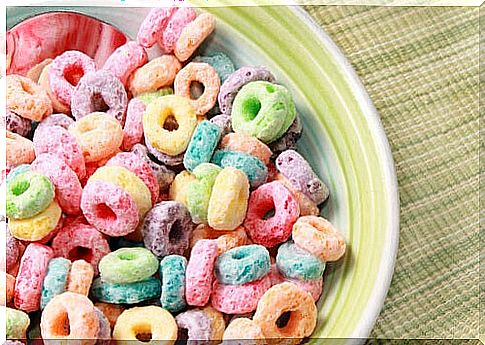
A large bowl of cereal can contain as much sugar as a bar of chocolate. To find out if your cereal is too high in sugar, be sure to check the label on the package.
Avoid any that contain more than 12 grams of sugar per serving.
Red meat
Red meats (like beef, pork, or lamb) are high in cholesterol and saturated fat.
Eating too much meat has been shown to lead to several chronic diseases, including heart disease and type 2 diabetes.
- Red meat can increase the risk of diverticulitis, a common inflammatory bowel disease.
Processed meats
It’s always a good idea to limit processed foods of all kinds, and protein is no exception.
- Processed meats, such as cold cuts, sausages, and cold cuts, tend to be high in sodium, preservatives, and saturated fat.
Flavored yogurts
Many flavored yogurts contain up to 30 grams of sugar per 6-ounce serving.
Forget drinkable yogurts, in fact many of them provide more calories in sugar than nutrients and can compromise satiety.
In other words, if you have flavored yogurt for breakfast, you will be hungry again before lunch.
Trans fatty acids
Trans fatty acids are found in fried foods, baked goods, and ready meals in the form of partially hydrogenated oils.
They are sources of an increase in the level of bad cholesterol (LDL) while reducing the good cholesterol (HDL). This increases the risk of heart disease and stroke.
Some healthier alternatives
The vegetables
The best vegetables are the darkest and most colorful, like spinach, kale, salad, turnip, and broccoli.
They are among the most nutrient dense foods on the planet. They are packed with vitamins, minerals and phytochemicals that help protect cells and strengthen the immune system.
- Aim to consume between 1.5 and 2 cups of these vegetables each week.
Legumes
Chickpeas, black beans and flageolet beans are a healthy alternative when combined with seeds and vegetables.
Legumes are very rich in fiber and vegetable protein. Plus, consuming cooked beans has been shown to be linked to reducing the risk of chronic disease and obesity.
Monounsaturated fats
Avocados are high in fat, but also healthy for the heart because they are monounsaturated fatty acids.
Avocados contain over a dozen essential nutrients. They are rich in fiber, vitamin E and B, and potassium.
The fruits
The dark pigments of blueberries, raspberries, blackberries and strawberries provide you with polyphenols and anthocyanins which provide antioxidant benefits.
Berries are also high in vitamin C and low in calories. Cranberries, in particular, are high in antioxidants and have even been linked to a reduced risk of heart disease and dementia.
Whole seeds
Unless you’ve been diagnosed with celiac disease or gluten intolerance, you should eat whole seeds every day. They are rich in fiber, vegetable protein, vitamins, minerals and phytochemicals.
The cereals
Oats are rich in omega-3 fatty acids, folic acid, fiber and potassium. This makes it a heart-healthy food that lowers cholesterol and burns fat.
- Avoid packaged products, which contain a lot of added sugars. Instead, consume plain oatmeal and sweeten it with fruit and honey.
Fish and seafood
Seafood is one of the healthiest types of protein you can find.
Filled with omega-3 fatty acids, they reduce the risk of inflammation in the body, regulate blood pressure. And reduce the risk of diseases such as irritable bowel syndrome.
People who eat a lot of fish and shellfish are less likely to experience depression and anxiety.
Tofu
Tofu has 10 grams of protein per serving, making it a great source of nutrients, especially for vegetarians and vegans.
Consuming moderate amounts of tofu has many benefits, including heart health.
Greek yogurt
With twice the protein of regular yogurt, Greek yogurt will keep you fuller longer while providing you with a good source of calcium.
- The best type is low fat Greek yogurt because it provides higher amounts of protein, with less fat per serving.
Keep these recommendations in mind the next time you prepare a meal. Remember that the way you eat will define how you feel.
